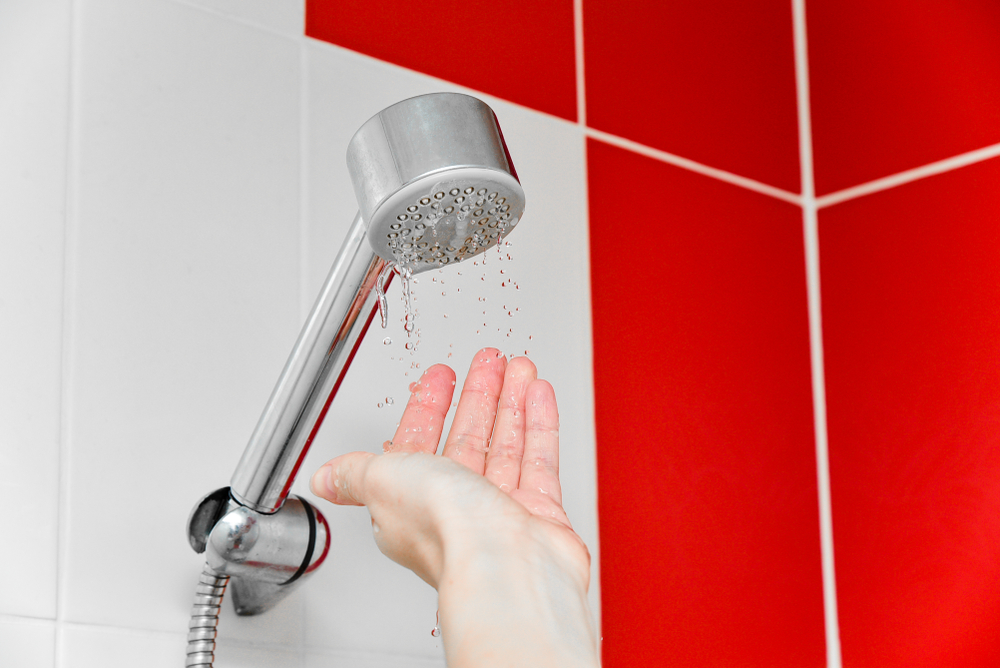
Water pressure is something most people don’t think about until there’s a problem. Whether you’re pounded by a fierce shower or struggling with a weak trickle of water from your faucet, water pressure plays a significant role in your daily comfort. Beyond convenience, water pressure can have a profound impact on the health and longevity of your plumbing system—and it can even pose safety risks. Here’s what you should know about your home’s water pressure, and why it’s important.
What is Water Pressure?
Water pressure is the force that pushes water through your pipes and out of your faucets, showerheads, and other fixtures. It’s measured in pounds per square inch (PSI), and the ideal range for most homes is between 40 and 60 PSI. This pressure is created by the water supply system, which may involve gravity (in the case of water towers), pumps, or the natural pressure from a municipal water system.
Water pressure is critical because it ensures that water can move efficiently through your plumbing system, reaching every fixture in your home with sufficient force. However, both low and high water pressure can lead to problems that affect everything from your daily comfort to the integrity of your plumbing system—and even your safety.
The Dangers of Too Much Water Pressure
While strong water pressure might feel great in the shower, it can put a significant strain on your plumbing system. Studies indicate that water pressure above 80 PSI can cause substantial damage to residential plumbing, shortening the lifespan of pipes, fixtures, and appliances.
High water pressure can be dangerous, causing problems that result in costly repairs, big messes, and tons of stress.
Pipe Damage and Bursts
It’s a homeowner’s nightmare to come home to find a pipe has burst, shooting water everywhere. Damp drywall, flooded furniture, and sodden carpet are difficult if not impossible to dry without the onset of mold and fungus. High water pressure causes stress on pipes, leading to leaks, bursts, and even the premature failure of your entire plumbing system. A burst pipe can flood your home, causing extensive water damage, particularly in older homes with weaker pipes.
Water Heater Issues
You want hot water from your water heater, but too hot is problematic. Excessive water pressure can affect your water heater. High pressure can cause the temperature and pressure (T&P) relief valve to malfunction, leading to potential overheating. Even worse, in extreme cases, it can lead to an explosion.
Fixture and Appliance Damage
Appliances are expensive, and nobody wants to replace them unless absolutely necessary.
High water pressure can wear down your faucets, showerheads, and appliances like dishwashers and washing machines. This not only shortens their lifespan but can also lead to leaks and malfunctions that could cause electrical hazards, especially around water.
Scalding Risks
High water pressure can cause rapid temperature fluctuations in your plumbing system. If the pressure suddenly increases or drops, it can lead to a surge of hot water, potentially causing scalding during showers, doing dishes, or washing your hands.
Increased Water Bills
High water pressure leads to increased water usage, as more water flows through your fixtures every time you turn them on whether you want it or not. This extra water results in higher water bills and unnecessary waste.
The Dangers of Low Water Pressure
On the flip side, low water pressure is a common issue, especially in older homes or homes with outdated plumbing. According to the U.S. Census Bureau, approximately 45 million homes in the U.S. are over 50 years old, many of which may still have original plumbing systems. Low water pressure can be caused by various factors, including clogs, leaks, or issues with the municipal water supply.
Low water pressure is as much of a problem as high water pressure.
Inadequate Flow
It’s frustrating to jump into the shower expecting to be cleansed with water raining down on you only to be trickled on with a few drops because the water pressure is low. Low pressure often results in weak flow from faucets and showerheads, making daily tasks like washing dishes or taking a shower more difficult and time-consuming.
Appliance Inefficiency
It’s hard for a dishwasher to clean dishes if the water doesn’t shoot out forcefully enough.
Low water pressure can affect appliances like dishwashers and washing machines, reducing efficiency and leading to longer cycle times.
Potential Leaks
Low pressure can indicate leaks in the plumbing system. Leaks not only waste water but can also cause structural damage over time if left unchecked.
Beware of Backflow
Low water pressure can sometimes be a sign of backflow issues, where contaminants enter your water supply. Backflow occurs when the pressure in your plumbing system drops below that of the supply line, allowing potentially harmful substances to be drawn into your water system. This can lead to contamination of drinking water with chemicals, bacteria, or other hazardous materials.
Inadequate Fire Safety
Hopefully, your home won’t ever catch on fire, but if it did, you wouldn’t want your water pressure to be too low. Low water pressure can compromise your home’s fire safety systems, such as sprinklers, which rely on adequate water pressure to function correctly. In the event of a fire, low pressure might make these systems ineffective, increasing the risk of fire damage.
How to Maintain Optimal Water Pressure
How do you know how much water pressure you have in your home?
You could go to a hardware store and buy a pressure gauge, make sure that you turn off all the faucets, then go outside and hook up the gauge to an outside spigot.
But it’s safer and easier to call ServiceOne. Our qualified plumbers can not only test the pressure, but they can also find out WHY the pressure isn’t right if it’s out of the 40-60 psi range. The right water pressure in your home is essential for both comfort and safety.
How do you maintain optimal water pressure?
Install a Pressure Regulator
If your water pressure is consistently too high, consider installing a pressure regulator. This device is attached to your main water line and can help maintain a safe pressure level throughout your home.
Address Leaks Promptly
Even a small leak can lead to a drop in water pressure. Regularly inspect your plumbing for leaks and address any issues immediately to prevent further damage. Better yet, enroll in ServiceOne’s ClubOne Membership! We offer annual plumbing inspections and maintenance plans!
Clean Faucets and Showerheads
Mineral buildup inside faucets and showerheads can restrict water flow, reducing pressure. Regularly clean these fixtures to maintain optimal performance.
The easiest way to clean your showerhead is to rub it with a cloth covered with baking soda and water. If that doesn’t do the job, unscrew the shower head and soak it in white vinegar! These methods take away the buildup of soap residue and minerals from hard water.
Upgrade Old Pipes
If your home has old, corroded pipes, they may restrict water flow and causing low pressure. It’s estimated that over 7 million homes in the U.S. still have lead or galvanized steel pipes that need replacing. Replacing outdated pipes with modern materials like PEX or copper can improve both water pressure and the overall reliability of your plumbing system.
Call ServiceOne Air Conditioning and Plumbing
If you’re experiencing water pressure issues or want to ensure your plumbing system is in top shape, don’t hesitate to contact us for professional assistance. We’re here to help you keep a healthy, efficient, and safe plumbing system. We'll keep your blood pressure low by keeping your water pressure where it should be!

